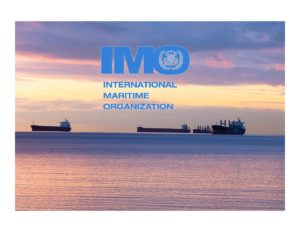 The Marine Environment Protection Committee (MEPC) of the International Maritime Organization (IMO) is meeting this week in London to discuss a new set of international regulations aimed at reducing greenhouse gas (GHG) emissions from ships.
The Marine Environment Protection Committee (MEPC) of the International Maritime Organization (IMO) is meeting this week in London to discuss a new set of international regulations aimed at reducing greenhouse gas (GHG) emissions from ships.
“The IMO Net-Zero Framework is not perfect. However, it provides a balanced basis for our further work on a number of elements ahead of its entry into force in 2027,” said IMO Secretary-General Arsenio Dominguez in opening remarks. “No specific fuel or technology has been excluded from the Net-Zero Framework as compliance option. I am confident that the various proposals that have already been submitted regarding the reward, fuel certification, well-to-wake emissions, or the fund will address remaining concerns and provide additional certainty.”
In a blog post this week, Renewable Fuels Association President and CEO Geoff Cooper said he hopes the interests of U.S. fuel producers, farmers, and shippers will be considered at the meeting.
The U.S. ethanol industry sees the IMO Net-Zero Framework as an enormous potential market opportunity for American-made renewable fuels produced from American-grown crops like corn, sorghum, and soybeans. How enormous? Well, the ships that would be subject to the IMO regulations typically consume roughly 70–80 billion gallons of fuel per year worldwide. To put that in perspective, total U.S. ethanol production last year was 16.1 billion gallons. Even if U.S. ethanol captured just 5 percent of the global maritime fuel market, it would equate to a game-changing demand boost of 4–5 billion gallons, while simultaneously increasing corn demand by 1.5 billion bushels or more. Just imagine the economic impact that this sort of new demand would have on the rural communities where ethanol is produced and corn is grown.
Cooper writes that according to Department of Energy (DOE) analyses, U.S. corn ethanol used for maritime fuel could reduce GHG emissions by 61 percent compared to the traditional fossil-based marine fuels being used today. The problem is the Trump administration has stated opposition to the IMO framework based on the belief that it would “preclude the use of proven technologies such as liquefied natural gas (LNG) and biofuels.”
Cooper says they don’t see it that way.
Again, according to DOE’s own analysis, U.S. ethanol—the lowest-cost alternative fuel available at scale worldwide—would be an incredibly competitive marine fuel option under the program. Major players in the marine engine and shipping industries are already acknowledging ethanol’s potential. Indeed, one marine engine manufacturer recently called adoption of the Net-Zero Framework “a beautiful case for those who have ethanol capabilities installed already” due to ethanol’s “handling benefits, growing availability and competitive pricing.”
The IMO meeting will conclude on Friday.

